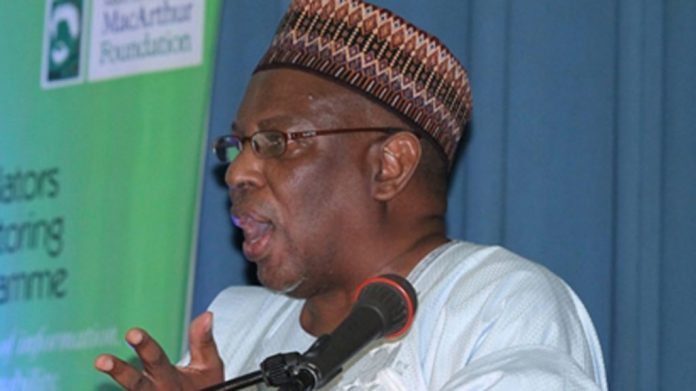The Executive Secretary of the Universal Basic Education Commission (UBEC), Dr Hamid Bobboyi, says there are currently no ‘un-access’ intervention funds in the commission.
Bobboyi explained that President Muhammadu Buhari has deducted from Paris Club Refund all outstanding counterpart funds from defaulting states up to 2018 and paid to UBEC.
He disclosed this to News Agency of Nigeria (NAN) on Tuesday during a four-day training for Physical Planning Officers of UBEC and State Universal Basic Education Board (SUBEB) in Kaduna.
The UBEC boss added that the commission has disbursed all the funds amounting to N142 billion; N71 billion from UBEC and N71 billion from the states as counterpart funds.
“I am glad to announce that technically, there are no ‘un-access’ funds in UBEC up to 2018 and that is why we came up with the new monitoring framework to ensure quality delivery of projects.
“We have put in a lot of resources in the hands of the states and, therefore, need to track how these resources are being utilised to provide the needed infrastructure for improved learning in basic schools,” he said.
Bobboyi said that to ensure quality delivery of projects across the states, the commission has reviewed the minimum acceptable standard of construction, roofing, ceiling and furniture.
“We went ahead to ensure that these standards are made clear to all stakeholders for joint monitoring that will ensure quality infrastructure that can well serve the basic education sector.
“Thereafter, we looked at the monitoring framework; what we need to do collectively, what UBEC engineers needs to do and what we are expecting from SUBEB engineers.
“The third level is the training of UBEC and SUBEB engineers to understand the new monitoring framework that involves independent consultants and the use of GPS to get coordinates and satellite feeds of every project.
“With this new development, contractor will deliver the expected quality and rectify all observed anomalies before he will be paid.
“The whole idea is to make sure that whatever we deliver to our communities is according to expected quality for our children to use for a very long time,” he added.
Bobboyi explained that it takes quite an effort to ensure school structure remained in good condition, adding that the country’s population was growing and putting pressure on existing infrastructure.
According to him, states need 10 per cent annual increase of school infrastructure from what was achieved the previous year to keep up with the growing population and the increasing need for access.
He pointed out that while some states were putting in place the needed infrastructure for conducive learning, others have not fully taken up the challenge for infrastructure renewal and expansion.
“We hope that with the N142 billion in the hands of the states and efficient monitoring, we should be able to have reasonable quality infrastructure in the basic education sector for effective teaching and learning,” he said.


